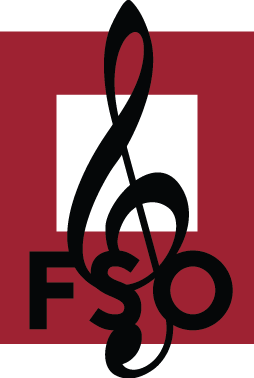
Have you ever wondered what makes classical music so unique from other genres? It’s about distinguishable elements, as outlined by the Frederick Symphony:
Musical Instruments. According to The Musik Planet, a lessons studio in Riverside, California, “Most modern forms of music…have [only] a couple of instrumentations used in its creation, whereas classical music uses several types of instrumentation.”
The instruments used in this genre come from different “families”, including string, woodwind, brass, and percussion. The word “family” is used because they’re all related through material, sound, and look.
- String. Our string section is comprised of the string bass, cello, violin, harp, and viola.
The bass is the largest and lowest-pitched bowed string instrument in the modern symphony. The cello is an Italian-born instrument that’s also called the violoncello, a 4-string instrument that’s tuned in perfect fifths.
The viola is a slightly larger instrument that offers a lower and deeper sound than that of a violin. However, a violin is the smallest and highest-pitched instrument in this family.
- Woodwind. The woodwind family of the Frederick Symphony includes bassoonists, clarinetists, flutists/piccoloists, English hornists/oboists, and saxophonists. Other groups use the contrabassoon.
- Brass. The FSO’s brass section is comprised of the French horn, euphonium/trombone, trumpet/tenor and alto horn, and tuba. Some symphonies include a baritone horn, cornet, flugelhorn, mellophone, and sousaphone.
The French horn is the most common brass instrument. Its tubing wraps into a coil with a flare bell to make a beautiful sound alongside euphoniumists and trombonists.
Trumpets are the highest-registry instrument in the brass family, and tubas are the lowest-pitched and largest instrument in this family.
- Percussion. Our percussionists play multiple, different instruments. The most common instruments in our percussion family are the bass drum, chimes, cymbals, gong, maracas, snare drum, tambourine, triangle, timpani, and xylophone. Some symphonies include the piano in this family while others use them as stand-alone units.
The use of strictly instruments makes up a symphonic orchestra. If the human voice is added to an ensemble of instruments, it becomes an opera.
Musicians. Classical musicians are extremely skilled in playing their chosen instrument. They’re well educated in music development, modulation, variation, phrases of differing lengths, counterpoint, polyphony, and sophisticated harmony.
Because classical compositions require a strong music knowledge to accompany skill, musicians are often trained in sight reading, ensemble coordination, and aptitude for a specific composer or era.
Composers. Classical music is used in a colloquial sense as a synonym for Western art music. It describes a variety of musical styles from the Middle Ages to the present, especially from the 17th to 19th centuries.
Truthfully, classical falls between the Baroque and Romantic periods, though people often assume it’s all the same. During the classical period, Wolfgang Amadeus Mozart, Johann Sebastian Bach, Franz Schubert, and Ludwig van Beethoven thrived.
Forms. Forms are numerous and well defined:
- Concerto is a musical work in which a solo instrument is accompanied by an orchestra.
- Dance music facilitates or accompanies dancing and can either be a whole or part of a larger musical arrangement.
- Etude is a short musical composition that provides practice in a particular technical skill in the performance of a solo instrument.
- Opera is an art form in which singer and classical musicians produce a composition that combines text and music.
- Suite form of music is an ordered set of instrumental or orchestral pieces that are performed in a concert rather than as accompaniments.
- Symphonic poem, also known as a tone poem, is a piece of orchestral music in one movement in which some extra-musical program provides a narrative or illustrative event.
- Symphony is a musical composition that’s reserved for a full orchestra.
To hear the Frederick Symphony perform classical repertoire, click below to find a concert near you:
